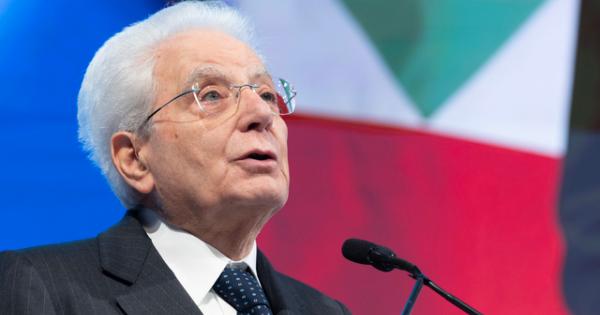(ANSA) – ROME, NOV 20 – “Millions of children and adolescents in the world still face poverty, social exclusion, inequality and denial of fundamental rights. Protecting children from wars, violence, exploitation and all forms of abuse is not just an obligation legal: it is a moral duty that calls everyone to make the protection of young people a collective priority”. The President of the Republic, Sergio Mattarella, writes this on the occasion of the anniversary of the signing by the United Nations General Assembly of the Convention on the Rights of Children and Adolescents. An international treaty, underlines Mattarella, “of historical importance which has recognized that children have specific rights, conceived on their growth, protection and development needs. The ratification of the Convention by a considerable number of countries – observes the head of State – has not, however, resolved the existing critical issues. Millions of children and adolescents around the world still face poverty, social exclusion, inequality and denial of fundamental rights”. Mattarella therefore shines a light on the dangers also coming from “indiscriminate access to social media” and from “prolonged times of use” which are, “for children, themselves forms of psychological and physical violence which can have serious repercussions on their well-being , on their health and their social relationships – he underlines – it is crucial that families, schools, communities and institutions work together in order to create contexts in which young people can feel valued, listened to and guided and in which they can have the right to dream, free to imagine a future in which to fully express one’s potential, it means giving a future to society, it means making young people the protagonists of their lives”, he concludes. (HANDLE).
© All rights reserved
!function(f,b,e,v,n,t,s)
{if(f.fbq)return;n=f.fbq=function(){n.callMethod?
n.callMethod.apply(n,arguments):n.queue.push(arguments)};
if(!f._fbq)f._fbq=n;n.push=n;n.loaded=!0;n.version=’2.0′;
n.queue=[];t=b.createElement(e);t.async=!0;
t.src=v;s=b.getElementsByTagName(e)[0];
s.parentNode.insertBefore(t,s)}(window, document,’script’,
‘https://connect.facebook.net/en_US/fbevents.js’);
fbq(‘init’, ‘471476730149687’);
fbq(‘track’, ‘PageView’);
#Mattarella #duty #defend #children #wars #violence
–
Responses:
Interviewer: Good day, I am pleased to have you both here today for this important discussion on the protection of children’s rights. Let’s start by introducing our guests. Alice, you are a child rights activist and advocate, while John is a social policy expert with extensive experience in researching children’s welfare. Thank you for joining us today.
Alice: Thank you for having me. It’s an honor to be part of this conversation.
John: Likewise, thank you for inviting me. I look forward to sharing my thoughts on this critical issue.
Interviewer: Mr. President Sergio Mattarella stated that protecting children from wars, violence, exploitation, and abuse is not just a legal obligation but also a moral duty that calls for collective action. In your opinion, how can we as a society better prioritize the rights and well-being of children?
Alice: Well, I believe that starts with education and awareness. We need to bring more attention to these issues and ensure that people understand the importance of protecting children’s rights. We also need to hold those who violate these rights accountable, whether it be through legislation or public pressure. Additionally, investing in programs that support children, such as access to education and healthcare, can help them reach their full potential and increase their quality of life.
John: Absolutely. I agree that education is key because it enables us to understand the challenges children face globally. We also need to involve children in decision-making processes regarding policies and programs that affect them. This way, their voices are heard and their perspectives considered. Furthermore, we should prioritize investment in social services that provide a secure and supportive environment for children to grow up in.
Interviewer: Mr. Mattarella also mentioned the dangers posed by social media and extended screen time. In what ways do you think these issues impact children’s rights? How can we address them responsibly?
Alice: Social media has both positive and negative effects on children. It can provide access to information and connect them with the world, but it can also lead to cyberbullying, addiction, and exposure to inappropriate content. Parents and educators should monitor their children’s use of such platforms and


